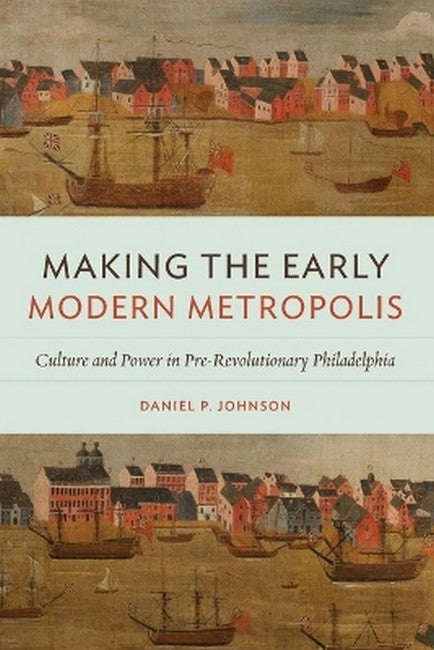Daniel P. Johnson is Assistant Professor of American Culture and Literature at Bilkent University, Ankara.
Request Academic Copy
Please copy the ISBN for submitting review copy form
Description
Johnson's book usefully delves into an understudied era of Philadelphia's colonial past. He reveals a period when the city, despite its Quaker founding ambitions, faced many economic, political, and social conflicts customarily endured by urbanites around the British Atlantic. He poses important questions that help us to understand some of the perennial conflicts between urban leaders and nonelite residents, as well as the structures of authority and regulation that those leaders established. If there is something familiar about this story, it is because cities past, present, and future are crucibles of unsettling conflict and novelty. At no point in its history was Penn's Philadelphia an exception.-- "William & Mary Quarterly" In Making the Early Modern Metropolis, Daniel Johnson explores early Philadelphia as we have never seen it before. With exceptionally rich archival detail and fine-grained analysis, Johnson takes early America's archetypally 'modern' metropolis and reveals the city's deep and complex roots in early modern European urban culture, with its struggles over commerce, labor, law, and the common good. In the process, this tremendous book helps to reframe the place of cities and civic culture in early American politics and society more generally. --Paul Musselwhite, Dartmouth College, author of Urban Dreams, Rural Commonwealth: The Rise of Plantation Society in the Chesapeake The current urban-rural divide in the United States shapes many of its cultural, political, and economic conflicts. Philadelphians, for example, typically interpret their lives much differently than do the residents of rural Western Pennsylvania. Any historical study that deepens our understanding of the foundations of those differences is by its nature valuable to understanding our own times. Making the Early American Metropolis brilliantly analyzes the development of the Quaker City during eight decades after its founding in 1682. By situating Philadelphia firmly within the context of the broader urban Atlantic World, Daniel P. Johnson provides marvelous new interpretations of continuities, conflicts, and changes in the most important city in early America. --Billy Smith, Montana State University, Author of Class Matters: Early North America and the Atlantic World

